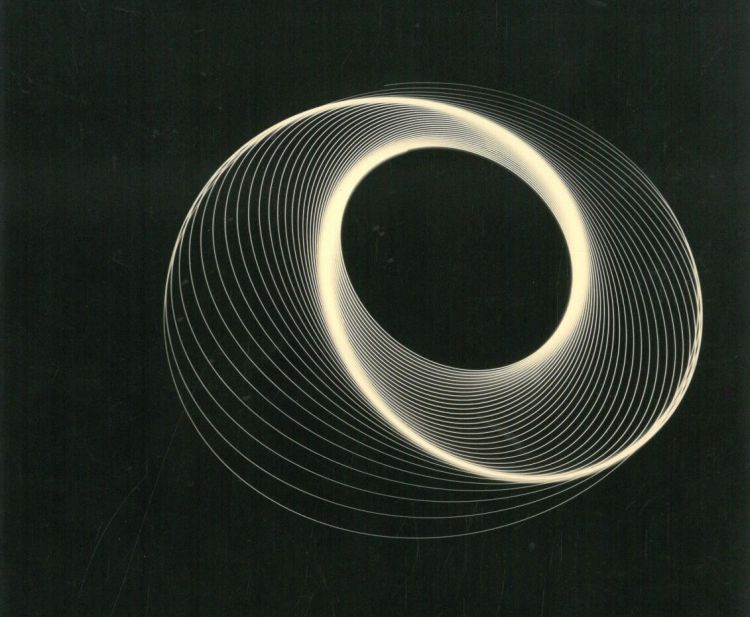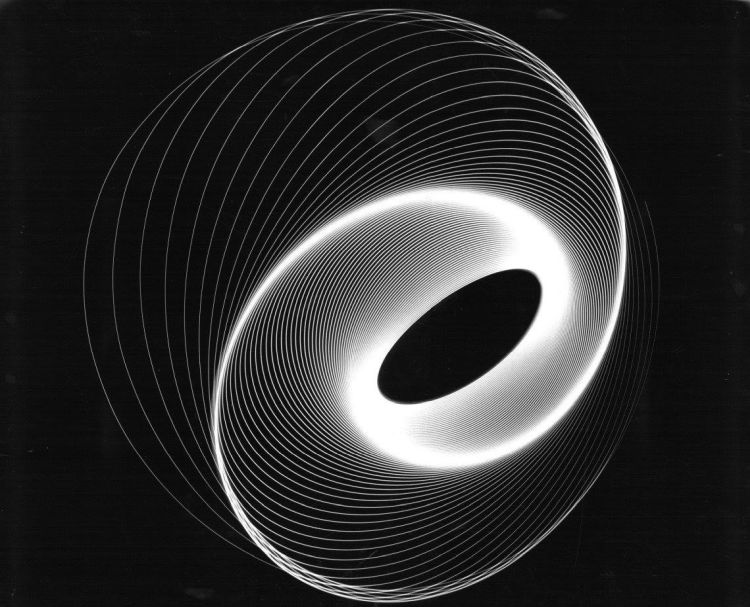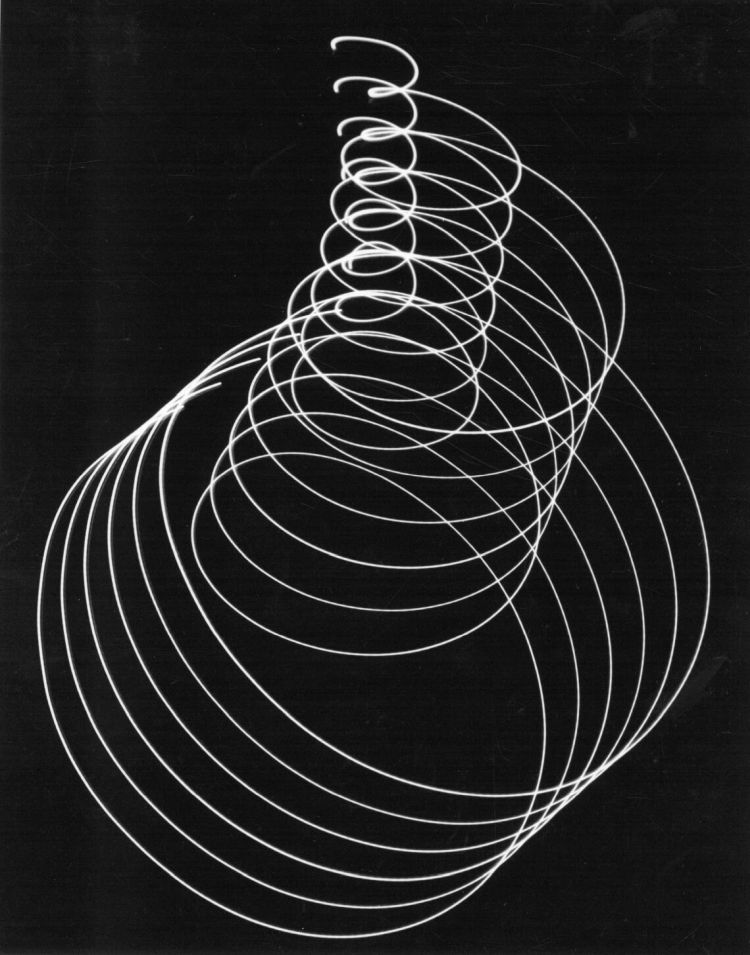The Swing of Uncertainty
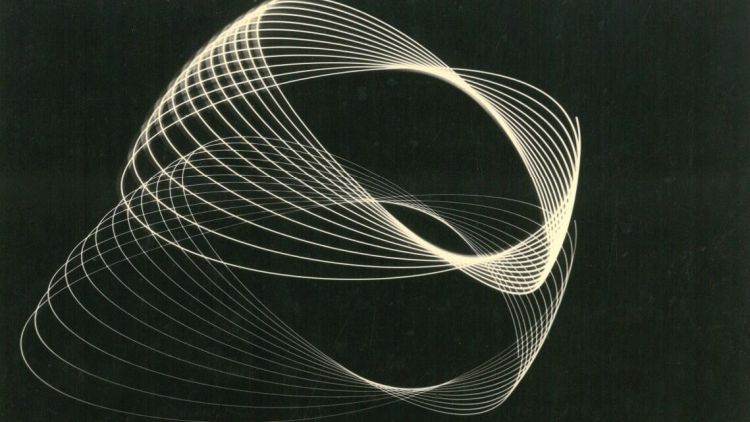
Featured image: One of the photographs from experimental photographer Peter Keetman’s series Light Pendulum Oscillation. (Peter Keetman)
We live in a world where people are dictated to be certain of truths they don’t truly comprehend. Boundaries are drawn, with no room for uncertainty. Great pain and suffering leave no choice for us but to fight for what we believe to be true in the most certain way possible. However, in some instances, uncertainty can help us, not only to get closer to the truth but to keep that truth dynamic.
In reports of scientific experiments, uncertainty is represented with a plus or minus sign (±). We cannot represent the phenomena we measure in full because our hypotheses about them are loaded with assumptions about the world. As such, a definite result can never be obtained with 100-% accuracy. Helpfully, uncertainty indicates the range a result may differ from the actual value. It characterises the limitations of our interpretation with respect to the true nature of entities being measured.
Uncertainty, in this sense, may cease to be the feared and negatively perceived notion that it mostly is. This isn’t to suggest that nothing can ever be true: it is to suggest that, in the general case, applying a very minor amount of uncertainty to our ‘truths’ can actually help us obtain a more certain picture.
Jacques Derrida’s notion of ‘the undecidable’ in his deconstructive thought has a similar nature to that of uncertainty. To Derrida, meaning is always both spatially and temporally deferred and differed. That is, there is an inherent undecidability in the present meaning: one can say a single word while it can mean two or more different things at the same time. For instance, one cannot decide whether ‘pharmakon’ means poison or cure since it means both. Similarly, what one might express later about a certain thing can change the initial meaning of it. That is to say, meaning is always dependent on what will be said or written next. Hence, undecidability exists within our perceptions and judgements. But we can try to characterise it as uncertainty in our expressions.
However, to Derrida, the undecidable doesn’t suggest that no final judgements can be made. Undecidability is not a kind of relativism but rather ‘a determinate oscillation between possibilities.’ But, he says, in any experience ‘we cannot decide if we are experiencing a memory or a present perception, if we are experiencing a present perception or an anticipation’. In other words, we cannot know if our perceptions and thoughts are results of all of our prejudices and past experiences or if they are independent ideas on their own. So, he argues that we must face the undecidable first to set a decision free:
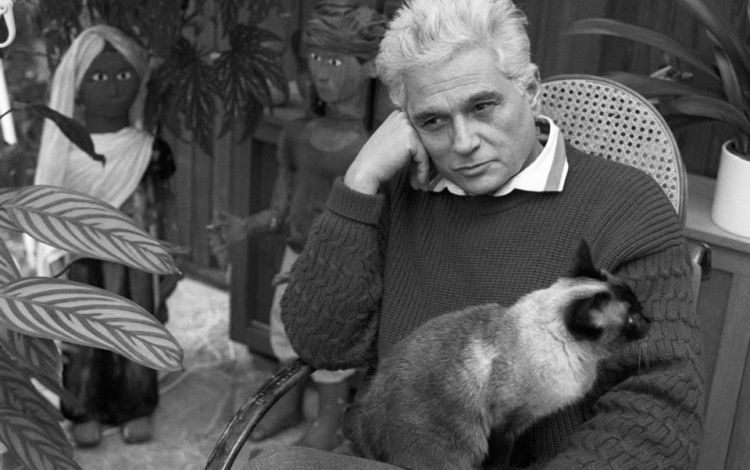
Jacques Derrida once pondered the question ‘who am I?’ in response to walking out of the shower naked in front of his cat. Should he have been embarrassed? No. For who should have been embarrassed? Each is an other, even to themselves—and their cat. Shrouded by uncertainty, the elusive ‘who’ is always deferred. (Sophie Bassouls/Sygma/Corbis)
Uncertainty can thus be perceived as a process of experiencing undecidability. No scientist, no philosopher, or no other person usually prefers to have a range of uncertainty in any given subject, no matter how small. This can refer to scientific claims, other claims about ‘reality’, linguistic conventions, blindly accepted ideas, unquestioned norms, dictated and imposed thoughts, and so on. But leaving the door of certainty only slightly open allows possible corrections to our ideas in.
One can take all the necessary measures to ensure that a calculation is accurate but there will still be uncertainty. Similarly, one can read, learn, think, discuss, and write about certain subjects to ensure there is no oversight, but there will still be some open and context-sensitive space for uncertainty to swing the meanings of our concepts into.
Our association with uncertainty keeps our inferences on those subjects as what John Stuart Mill calls ‘lively truths’ instead of ‘dead dogmas’. It ensures our ideas and decisions have not turned into machines searching through the archives and presenting the outputs in delimited fashion, keeping them freer and more informed.
Having an imaginary plus or minus next to our claims prepares them for continual growth, or in some instances, shrinking. They may take us closer to the truth, if that is a real feature of language, weakening or strengthening certain assertions accordingly.
This does not have to mean we can never operate with our concepts, apply them to life, and even hold them as truths such that they can be useful. Rather, keeping uncertainty close to them to express a range of oscillatory possibilities will allow them to become something else in the future: to evolve. Sometimes the degree to which uncertainty affects the meaning may be very small—for example, in moral claims (e.g. ‘Murder is wrong’) or scientific assertions (e.g. ‘Acceleration due to gravity is 9.8 ms-2’)—but uncertainty is nonetheless present in the assumptions.
However, many evils are built on the certitude of ideologies (e.g. ‘The Aryan race is superior’) against which uncertainty cannot retaliate with the same conviction. Jean-Paul Sartre calls this certitude ‘bad faith’.
In such cases, the correct response is not associated with the nature of certainty or uncertainty but with the pragmatic instincts to save the day and save oneself. To save lives, rights, freedoms—people must hold on to certain truths (illusory or not). We don’t have the time to ‘go through the ordeal of the undecidable’ in our decision-making. We cannot afford to be uncertain. Throughout history, such evil certainties have taken over society and they continue to tear the world apart today. Whilst fighting the perpetrators of evil, the uncertainty signs should fade away, if that is what will help the cause.
Still, uncertainty should be seen as a helpful guide instead of the hindrance it is usually perceived as. Keeping the faded signs of plus or minus close to the thoughts one holds doesn’t always take away their value but instead keeps the concepts of our discourse open to constant refinement. It doesn’t make them fall into disuse but become more liberated.

